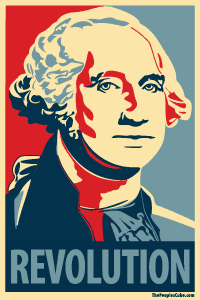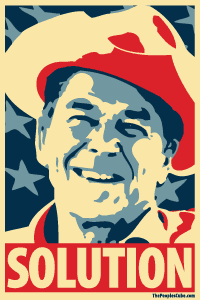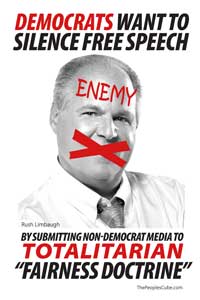By Jim Byrd | May 11, 2012 | Canada Free Press
Harvard Law School Professor Einer Elhauge published an article in The New Republic titled, “If Health Insurance Mandates Are Unconstitutional, Why Did the Founding Fathers Back Them?” The foundation of his argument is the belief that the Militia Act of 1792 was a mandate to purchase a firearm, and the 1790 and 1798 acts by Congress requiring that ship owners purchase medical insurance for seamen, was a mandate forcing the citizens of the states to make a commercial purchase under the Commerce Clause.
Professor Elhauge presents as fact that these two mandates required engagement in commerce, thus setting 200+ years of precedent by the first Congress, “which was packed with framers,” as per his depiction. He then states, “Nevermind that nothing in the text or history of the Constitution’s Commerce Clause indicates that Congress cannot mandate commercial purchases.” The professor appears to subscribe to the oft employed licentious theorem of the Left that if it is not enumerated in Article 1, Section 8, then Congress can presume it has unfettered authority to mandate, tax, legislate, control, and dictate wantonly. But, plausibly, historically, and factually, that is neither the intent nor the spirit of Article 1, Section 8, as it was not an enumeration of what the government should or could do, but rather a very narrow set of limitations constraining what the government can do. What the government cannot do is mandate commercial purchases under the Commerce Clause, as that power was not enumerated, intended, nor would it have survived ratification. Perhaps a perfunctory history lesson of why the Constitution was created, and the purpose of the Commerce Clause, may be the antidote to apocryphal balderdash.
Liberals, progressives, and a particular genus of law professors are wringing their hands in animated intoxication regarding these two particular mandates cited by Professor Elhauge. And reinforcing Professor Elhauge’s theorem of mandated purchases under the Commerce Clause, the Left are evidencing case law functioning as unsanctioned amendments to the Constitution, or as unsanctioned legislation fabricated by American jurisprudence. This benighted infatuation with stare decisis, this judicial inbreeding of the Supreme Court assigning dominion of past Supreme Court rulings as surrogates for the Constitution, has resulted in the passing of deleterious and recessive traits to each Supreme Court progenitor. As with genetics, if the Supreme Court reaches a faulty decision, or flagrant political or agenda driven decision, this trait is passed down to each successive Supreme Court that is indentured by the judicial genetics of stare decisis. Professor Elhauge appears to be erroneously attesting that the first Congress, “which was packed with framers,” mandated that the citizens of sovereign states, states that ceded very few enumerated powers to the newly created federal government, were forced to engage in commerce ad libitum.
Before brandishing adulterate case law and phantom mandates, one question must first be answered: What was the purpose of adding the Commerce Clause to the Constitution?
One must delve much deeper than the burlesque Supreme Court assembled by FDR and its league of handpicked ideologues parading around as judiciously inclined justices. These robe wearing sycophants infected American constitutional jurisprudence with the New Deal, and especially Wickard v. Filburn. Wickard v. Filburn breached the boundaries of the Constitution by affording the federal government an almost immeasurable expansion of powers via the Commerce Clause. And if this unburdened scope of power was the original intent of the Commerce Clause, what was the point of the founders penning the remainder of the Constitution if it is subordinate to the Commerce Clause? Indeed, it is necessary to delve beyond FDR’s reign, beyond Professor Elhauge’s imaginary mandates of commerce, back to the Articles of Confederation and the commercial dysfunction between the states.
Prior to the ratification of the United States Constitution, the governing document of the United States was the Articles of Confederation. Of the myriad weaknesses of this document, the focus will be commerce and the militia, as these two areas are what Professor Elhauge perhaps employed in some fashion of palmistry to arrive at his supposition.
Prior to the American Revolution, colonial commerce was regulated by Great Britain, and to a greater extent in the years just preceding the Declaration of Independence. After independence was declared, the framework of colonial commerce changed, immediately going from regulated to unregulated. Without a structured and enforceable set of regulations to ensure the equitable and uninterrupted flow of the transportation of goods between the states, counterproductive trade barriers between the states arose and jeopardized the necessary commercial alliances of the states essential for sustainability of the nation. The states having the advantage of ports charged exploitative tariffs on goods that passed through their ports en route to and from the states without ports. This started a series of trade wars pitting states with ports against states without ports, with both sides charging counterproductive tariffs.
To compound the problems created by discordant commerce, the Articles of Confederation lacked the mechanism to provide and enforce a uniform monetary policy to protect commerce as well. Under the Articles of Confederation, the states had the authority to setup their own monetary systems and print their own currency.
Article III of the Articles of Confederation addresses the states entering into a “firm league of friendship with each other, for their common defense,” while Article VII addresses the appointing of officers of the land forces raised by the states, and Article VIII addresses the expenses and funding of “All charges of war, and all other expenses that shall be incurred for the common defense or general welfare.” The government did not have to power to raise an army for defense, and the government did not have to funds to honor Article VIII regarding paying expenses of defense, as the government was unable to even collect the taxes due to pay off the debt from the Revolutionary War. The states generally ignored the federal government regarding taxes, and the Articles left the government powerless to collect taxes.
Even though the states maintained their militias after the end of the war, the inability of the federal government to raise an army left the newly sovereign states vulnerable without a united military front. Even after the Treaty of Paris was signed, the forts in Northwest Territory remained under British control and occupation. The states were not enforcing nor abiding by the provisions of the Treaty of Paris, and the government lacked the power to compel them to do so.
Read the full article here.
Related Articles
- McConnell: Commerce Clause ‘meaningless’ if Obamacare ruled constitutional [VIDEO] (dailycaller.com)
- The individual mandate case is an opportunity to begin restoring the framers’ vision (dailycaller.com)
- Death knell for Obamacare may be near (dailycaller.com)
- Obamacare: The President’s Wooden-headed Interpretation of Our Constitution (biggovernment.com)
- Judicial Watch Files Brief with U.S. Supreme Court Challenging Constitutionality of Obamacare (biggovernment.com)
- Limit this, Jack! (dailycaller.com)
- Wickard v. Filburn: Time for It to Go! (spectator.org)
- GUNS, SEAMEN, AND THE COMMERCE CLAUSE: Columbia Lawprof Phil Hamburger responds to Einer Elhauge. … (pjmedia.com)
- Uphold Healthcare Reform, Narrow the Commerce Clause (tightwind.net)









